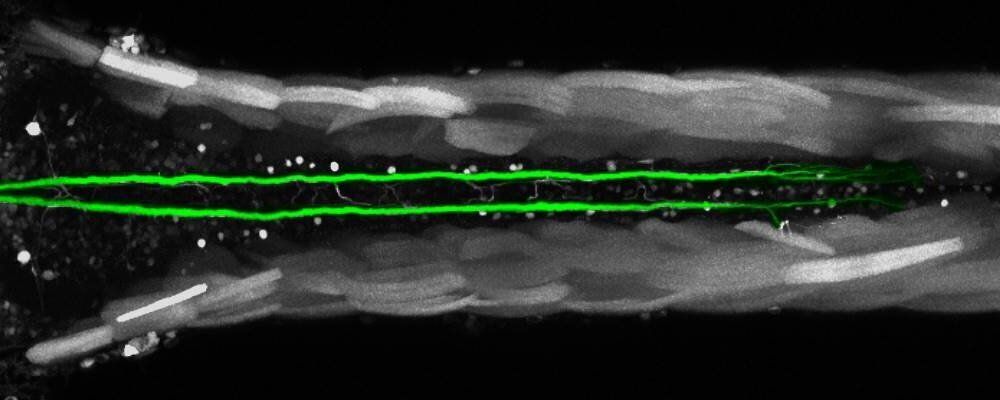Biologists from the University of Bayreuth have discovered a uniquely rapid form of regeneration in injured neurons and their function in the central nervous system of zebrafish. They studies the Mauthner cells, which are solely responsible for the escape behavior of the fish, and previously regarded as incapable of regeneration. However, their ability to regenerate crucially depends on the location of the injury. In central nervous systems of other animal species, such a comprehensive regeneration of neurons has not yet been proven beyond doubt. The scientists report their findings in the journal Communications Biology.
Mauthner cells are the largest cells found in animal brains. They are part of the central nervous system of most fish and amphibian species and trigger life-saving escape responses when predators approach. The transmission of signals in Mauthner cells to their motoneurons is only guaranteed if a certain part of these cells, the axon, is intact. The axon is an elongated structure that borders the cell body with its cell nucleus at one of its two ends. If the injury of the axon occurs close to the cell body, the Mauthner cell dies. If the axon is damaged at its opposite end, lost functions are either not restored at all or only slowly and to a limited extent. However, the Mauthner cell reacts to an injury in the middle of the axon with rapid and complete regeneration. Indeed, within a week after the injury, the axon and its function are fully restored, and the fish is able to escape approaching predators again.
“Such a rapid regeneration of a neuron was never observed anywhere in the central nervous system of other animal species until now. Here, regeneration processes usually extend over several weeks or months,” says Dr. Alexander Hecker, first author of the new study and member of the Department of Animal Physiology. This finding clearly disproves the widely accepted view in the scientific community that Mauthner cells are unable to regenerate.
